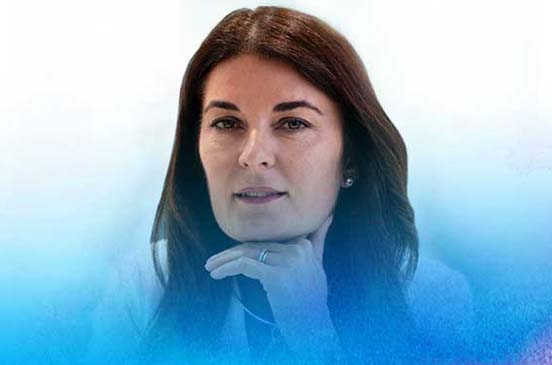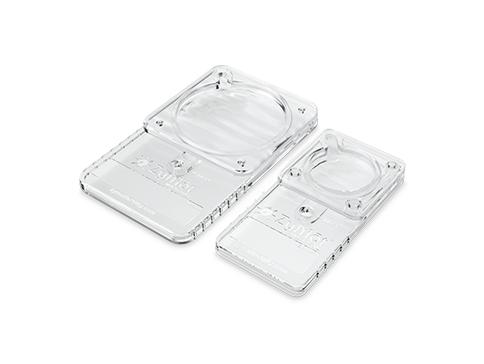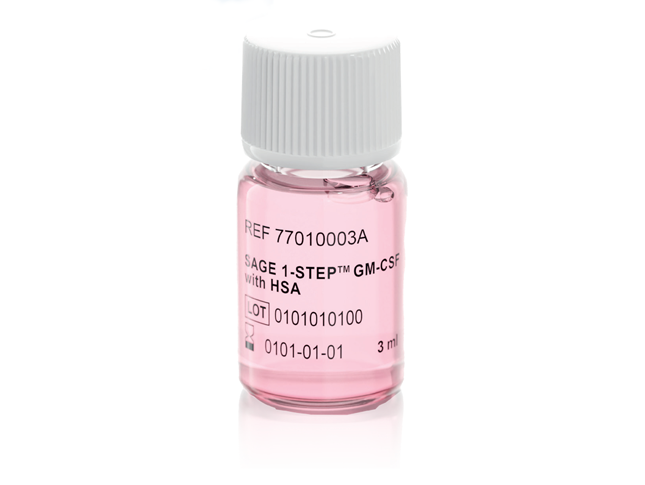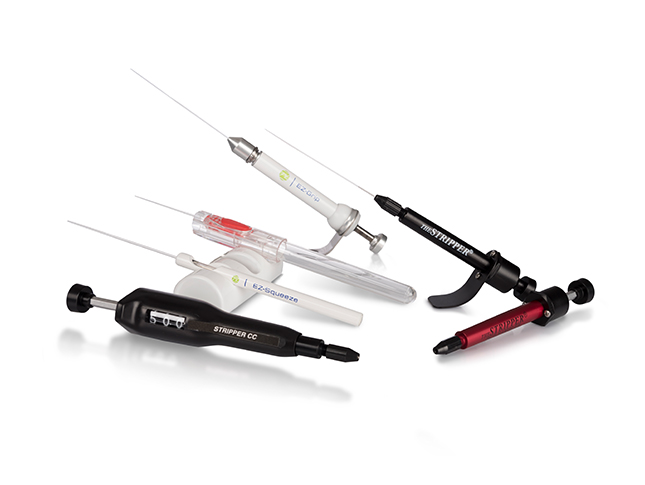By Tony Gordon, PhD
Vice President of Global Genomics Business Development, CooperSurgical
With more and more people seeking fertility treatment throughout the world, clinics are forced to find innovative approaches to optimize fertility outcomes. So how do they do that? For Tony Gordon, Vice President of Global Genomics Business Development at CooperSurgical, there is a clear answer to that question: data – and how we utilize that data. Every day, fertility clinics, hospitals and organizations such as CooperSurgical collect data and information, and if put to use and analyzed, this data can provide clinics and patients with crucial evidence that can enable them to make better-informed decisions.
Dr Gordon works at the frontier of science, always on the lookout for technology that can make a difference for patients and clinics as well as how to improve the use of current technology. Tony has a PhD in Molecular Genetics and for the last 20 years, he has been working in the molecular diagnostics industries, the last 15 of these in IVF preimplantation genetic testing.
My wife and I used assisted reproductive technology to have our son, so for me, there is a very personal investment in improving fertility care as much as possible for people all around the world. Everybody should have the opportunity to have children, whether they are single, a couple, LGBTQ+ or face other personal circumstances – everybody should have the opportunity to try for a child, if they wish.
Since they were first introduced, fertility treatments have improved, but results plateau unless new innovations are brought to the field. In Europe, one in every three cycles will currently result in a baby, but the ideal for us is one cycle, one baby. We are a long way from that.
“My wife and I used assisted reproductive technology to have our son, so for me, there is a very personal investment in improving fertility care as much as possible for people all around the world.”
I work with traditional business development, and I am very involved with the scientific direction of Life Sciences at CooperSurgical. I am always looking at the latest technologies and how we can make use of them in the best way, staying up to date on fertility care and looking at all the different aspects on how we can improve.
Using the PGTaiSM platform to improve embryo transfer outcomes
One of the most exciting things we are working on at CooperSurgical is a state-of-the-art analytical tool, or what we call the PGTaiSM technology. For pre-implantation genetic testing (PGT), embryos are grown in the IVF laboratory, biopsied and sent to a CooperSurgical laboratory. These biopsies contain only 5 – 10 cells, approximately, from an embryo that has been growing for 5 or 6 days. The DNA in the cells is extracted and analyzed via the PGTaiSM platform, guiding clinicians for a suitable embryo to transfer. When we look at the data, it suggests that women over 35 have more embryos with abnormal chromosomes so that became a focus area for us.1 It is an emerging technology, and we are continually working on improving accuracy.
Before the PGTaiSM technology emerged, the analysis of the sample required human interpretation, which required technicians to make a subjective assessment. We understand that subjectivity is a limiting factor of this test. With the many years of experience and data generated, we decided to develop and train an Artificial Intelligence (AI) tool with real outcome data for a more accurate and objective interpretation of results, thus providing greater confidence in embryo classification and guiding embryo transfer.
AI and real-world embryo data
The power of AI relies on Big Data – a larger, more complex and ever-growing collection of data sets. We started with 1,000+ embryo data with known clinical outcomes, meaning they all lead to sustained pregnancy or live births. Since we already knew what the positive outcomes looked like, we were able to feed that information into the AI technology, helping us classify embryos results more effectively and accurately.
And the accuracy is improving quite a lot. When we tested this technology with AI versus analysts, the results were clear: the PGTaiSM technology was more accurate and showed a significantly higher ongoing pregnancy and/or live birth rate (OP/LBR) compared to standard next-generation sequencing (NGS).2

“The more data we collect, the more information we get, the more we learn, the better outcomes we will be able to get through AI.”
Download our PGTai Technology Platform White Paper
AI technology is also in many ways the future of IVF, not just when it comes to screening embryos, but it is entering all aspects of the clinic. Most forms of treatment people are looking for can be improved through AI. The more data we collect, the more information we get, the more we learn, the better outcomes we will be able to get through AI.
Utilizing data as an informative tool can lead to more live births
At CooperSurgical alone, we create terabytes of data every day. We need to utilize that effectively and improve the chances of success of a live birth. Chromosomally abnormal embryos typically fail to implant or, worse yet, lead to pregnancy loss. So, it is not just about getting pregnant but achieving sustained pregnancies that result in live births.
“Because there can be an enormous amount of trauma in dealing with miscarriages, it is vital that we set realistic expectations for patients.”
The collective IVF community wants to be able to say to patients that we are improving their chances and that the treatment is safe and reliable. I also believe we have to ensure full transparency. Because there can be an enormous amount of trauma in dealing with miscarriages, it is vital that we set realistic expectations for patients.

I am not just invested in improving fertility care because of my personal background, I am also very invested on a societal level. If we look at reproductive rates around the world, in Western Europe, Southeast Asia, countries like Italy, Greece, Japan and South Korea, we see that populations are declining. People are having children later and later, which makes IVF incredibly important. We need to ensure IVF is accessible to more people – and technology can help enable this. The more success we have, the more we can help to improve outcomes, the better it will be for fertility care globally.
“… I am excited to continue exploring the possibilities within this area, to see fertility care improve today and into the future.”
Currently, many potential parents undertake genetic screening to determine whether they are carriers of genetic disease and at risk of passing it onto potential children. If you take cystic fibrosis, for example, lots of people carry one mutation, but if both the patient and partner are carriers, there is a one in four chance that they will have a child with the full disease.3 Here at CooperGenomics, we are at the forefront of PGT-M (monogenic disease), which involves testing embryos from patients that are carriers of genetic disease to help ensure that affected embryos are identified.
This type of technological advancement makes the fertility industry an exciting and promising sector to work in. So, I am excited to continue exploring the possibilities within this area, to see fertility care improve today and into the future.
References:
1 Marquard, K., Westphal, L., Milki, A., & Lathi, R. (2010). Etiology of recurrent pregnancy loss in women over the age of 35 years. Fertility And Sterility, 94(4), 1473-1477. doi: 10.1016/j.fertnstert.2009.06.041
2 Buldo-Licciardi et al. (2020). Second generation artificial intelligence technology for preimplantation genetic testing (PGT) improves pregnancy outcomes in single thawed euploid embryo transfer cycles (STEET). In: American Society for Reproductive Medicine; 2020 Oct 19; virtual. Retrieved from https://asrm.confex.com/asrm/2020/meetingapp.cgi/Paper/8645
3 Carrier Testing for Cystic Fibrosis. (2021). Retrieved from https://www.cff.org/What-is-CF/Testing/Carrier-Testing-for-Cystic-Fibrosis/











